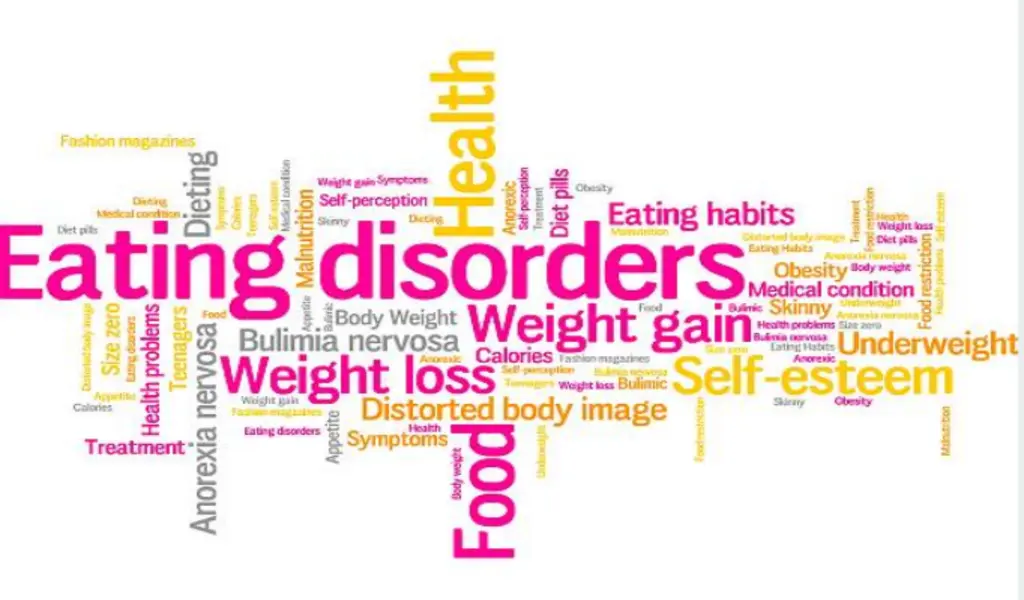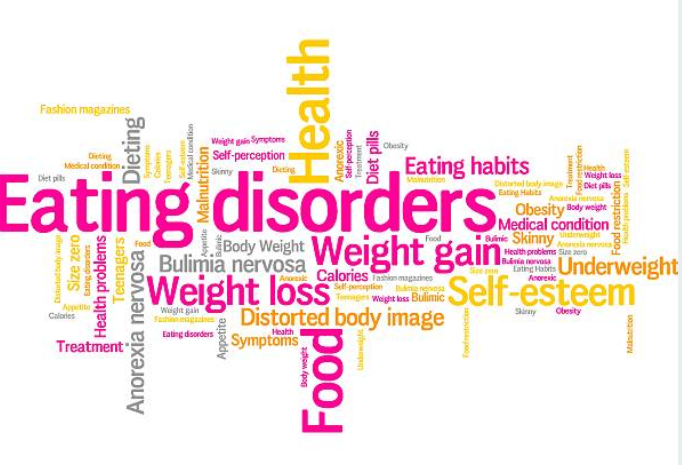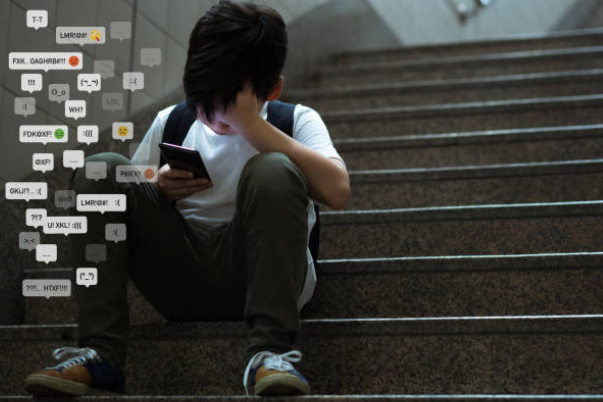Learning
Social Media’s Impact on Eating Disorders and Mental Health

Ever wondered about the impact of social media on our eating habits and mental well-being? We’ve all heard about screen time warnings – how it messes with our sleep and overall health. But does social media mess with our minds and eating habits too?
As technology takes center stage, we often find ourselves captivated by our screens, immersing in a never-ending stream of content. But, what impact do these digital platforms have on us? Are there genuine connections between scrolling and mental health concerns or the complex realm of eating disorders?
In this blog, we will discuss the link between social media and eating disorders as well as mental health. We will also take a look at some tips to minimize your risk of developing an eating disorder or mental health issues due to excessive use of social media.
We will discuss how to take social media breaks, how to be more mindful of your social media usage, and how to engage in positive self-talk. So, let’s get started;
The Link Between Social Media and Eating Disorders
The digital era has brought a new challenge to our society – the link between social media and eating disorders.
Social Media’s Effect on Body Image Perception
Social media platforms, with their constant stream of ‘perfect’ bodies and lives, often contribute to unrealistic beauty standards. Users are exposed to a barrage of images that may manipulate their perception of body image, nudging them towards unhealthy ideals.
The Role of Influencers and Celebrities
Influencers and celebrities hold immense sway on social media. They often promote body ideals that are unrealistic for an average individual. Their airbrushed photos and glamorous lifestyles can create a skewed understanding of what’s attainable and healthy.
Negative Impact on Eating Habits
Social media also introduces users to fad diets and extreme fitness trends, promoting unhealthy behaviors. It’s not uncommon to see posts advocating for drastic calorie restriction or excessive exercise, both of which can lead to disordered eating and a negative relationship with food and body.
Body Shaming and Cyberbullying
Online platforms can sometimes become arenas for body shaming and cyberbullying, further amplifying negative self-image and potentially triggering eating disorders.
Seeking Validation and Likes
The desire for validation and the pursuit of likes and followers can often lead individuals to go to extreme lengths. The race for more and more likes on social media can lead to obsessive behaviors, unhealthy comparisons, and even eating disorders as people strive to maintain an image that is often far from their real selves.
While social media has its benefits, it’s important to recognize its potential drawbacks and to promote healthier, more realistic attitudes towards body image and eating habits.
What’s the Connection Between Social Media and Mental Health
Let’s discuss the surprisingly intricate connections between social media and mental health.
Social Media and Loneliness
Interestingly, despite being a platform for connection, social media can contribute to feelings of isolation. The virtual nature of these connections can sometimes fail to fulfill our innate need for genuine, face-to-face human interaction, leading to a paradoxical sense of loneliness.
Cyberbullying and Its Psychological Effects
Cyberbullying is a dark undercurrent of digital interaction. The anonymity provided by such platforms can often lead to harsh criticisms and personal attacks, which can be detrimental to mental well-being.
FOMO and Social Comparison
The Fear of Missing Out (FOMO) is a byproduct of the endless stream of holiday photos, party updates and professional achievements that flood our feeds. It can lead to a constant feeling of inadequacy and an unending cycle of social comparison.
The Trap of Social Comparison
Social media has created a strange dynamic where likes, shares, and followers are seen as a measure of popularity and validation. This unhealthy quest for digital acceptance often leads to anxiety and low self-esteem.
Impact on Sleep Quality and Mental Rest
Late-night scrolling through social media feeds can disrupt sleep patterns, leading to poor sleep quality. Unhealthy sleep practices can potentially lead to more serious psychological issues.
Tips to Minimize your Risk of Social Media Leading to An Eating Disorder
There are several steps you can take to avoid yourself from the potential harm that social media might have on your mental and physical health.
Allocate Specific Time for Social Media Use
It’s crucial to have a healthy balance. Instead of endlessly scrolling through your feeds, dedicate specific time slots for your social media activity. This ensures you’re not spending excessive amounts of time on these platforms.
Unfollow Accounts That Impact Your Mental Well-being
Don’t hesitate to unfollow or mute accounts that make you feel inadequate or trigger dissatisfaction with your body. It’s your virtual space, make sure it’s a positive one!
Prioritize Spending Time With Friends and Family in Person
While online connections can be delightful, they should never replace real-world interaction. Physical meet-ups, conversations, and shared experiences reinforce our sense of community and belonging.
Participate in Meaningful Conversations and Discussions
Engage with content that sparks thoughtful dialogues and broadens your perspective related to marketing, business or your field, rather than focusing solely on appearance-based content.
Reduce Screen Time for Improved Rest
Your body needs a break from the blue light emitted by screens. Reduced screen time, especially before bed, can lead to better sleep and overall health.
Limit Interruptions During Work or Study Hours
Turn off notifications or use apps to block social media during your productive hours. This helps maintain focus and reduces the stress of constant digital bombardment.
Avoid Comparisons and FOMO (Fear of Missing Out)
Remember that social media is a curated highlight reel of people’s lives. Resist the urge to compare yourself to others and don’t let FOMO guide your actions.
So, utilize these tips to minimize your risk of eating disorder and mental health issues. Also, take some regular breaks from social media to refresh your mind.
FAQ’s
Q: How social media affects body image and mental health?
A: Social media platforms often portray idealized images of beauty and body shape which can lead to unrealistic expectations. These expectations can negatively impact our self-esteem and body satisfaction, contributing to an unhealthy mental state.
Q: Does the media play a role in the development of eating disorders?
A: Yes, media can often contribute to the development of eating disorders. With the constant bombardment of images portraying ‘ideal’ body shapes and sizes, individuals may feel pressured to conform to these standards, potentially leading to unhealthy eating patterns and disorders.
Q: How the media affects body image and eating disorders?
A: Media, particularly social media, can perpetuate unrealistic and harmful beauty standards. These images and messages put a pressure on individuals, especially females. This pressure led to poor body image, mental health issues, eating disorder and unhealthy eating habits.
Conclusion
Social media has a significant impact on our mental health, and unfortunately it isn’t always positive. Eating disorders can be triggered by exposure to triggering images on social media platforms. Thorough awareness of body image issues is needed if we are to properly address this problem.
We must actively engage in healthy behaviors, both online and offline, such as avoiding comparing ourselves to others, challenging negative thoughts, and monitoring our digital media intake. At the end of the day, remember, it’s okay to step away, to disconnect from the virtual world and reconnect with yourself. So, good luck and thanks for reading!
SEE ALSO: 5 Website Maintenance Hacks To Ensure Uninterrupted Online Success
































